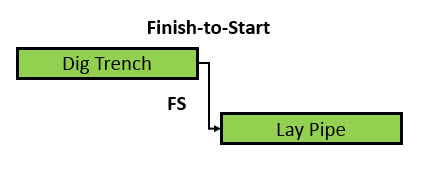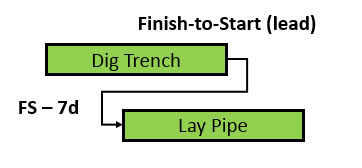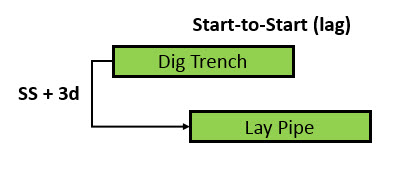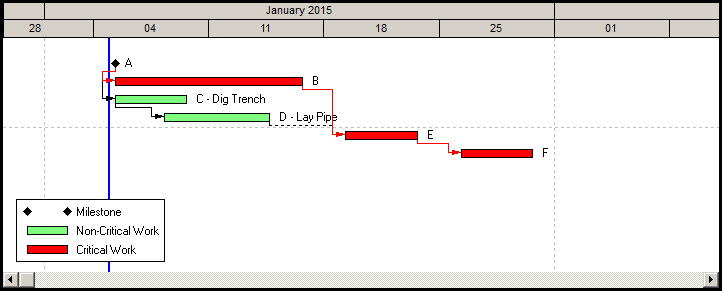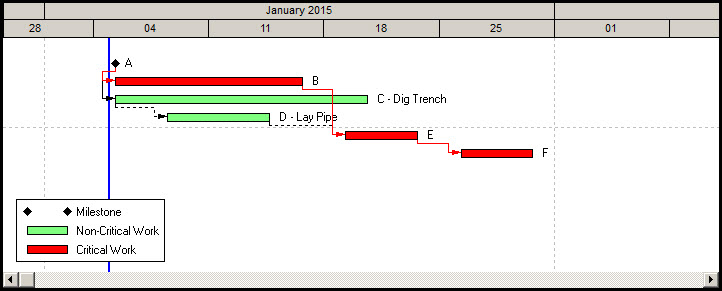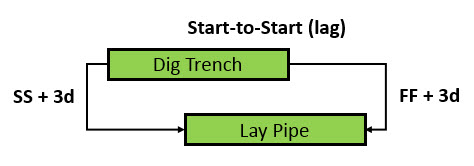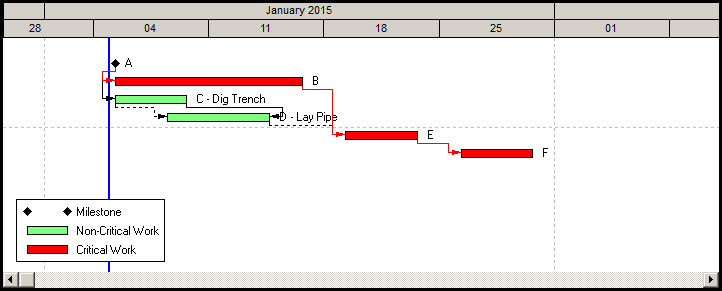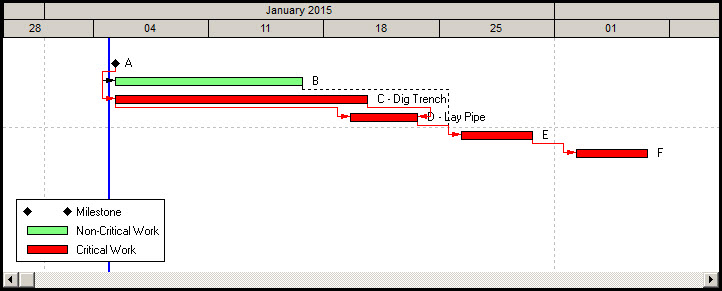In Primavera P6, once all the activities are clearly defined and the corresponding durations accurately estimated, the next step in the scheduling process is to define the relationships between these activities. This can be a deceptively challenging process. It may appear that you have all the relationships between activities sufficiently defined. But when you start the update process your schedule has logic and critical path errors that are difficult to spot. These errors are most likely caused by an open network somewhere in your schedule. This means that the relationships between activities have loose ends.
A common relationship susceptible to loose ends is the Start-to-Start relationship, where the start relationship of the activities is clearly defined, but the finish relationship of the activities has no definition. This is an open network problem, and, in particular, the Start-to-Start open network problem.
This article discusses the problem of the Start-to-Start (lag) open network, and how to solve this open logic issue using Primavera P6.
Benefits and Pitfalls of Start-to-Start Relationships
The most common relationship between activities in scheduling software is the simple Finish-to-Start relationship. For the tasks Dig Trench and Lay Pipe a Finish-to-Start relationship on the Gantt chart would look similar to Figure 1.

Figure 1
For lengthy trench/piping systems the laying the pipe activity may start before the completion of the dig the trench activity. In this case you would have Finish-to-Start relationship with a lead, as displayed in Figure 2. The lead is the amount of time that the laying the pipe activity may commence before the completion of the dig the trench activity. In this case the Lay Pipe activity begins 7 days before the completion of the Dig Trench activity. This logic using leads may be somewhat confusing though.

Figure 2
It is understandably simpler to define the relationship between the Dig Trench and Lay Pipe activities as a Start-to-Start relationship with a lag on the lay piping activity, Figure 3. This, however, leaves the completion of these tasks undefined and creates an open network.

Figure 3
Sample Schedule
Figure 4 displays a project of six tasks labeled A through F. Task A is the start milestone and is connected to both task B and task C – Dig Trench through simple Start-to-Start relationships. Task B connects to Task E in a classic Finish-to-Start relationship. Next comes our Task C- Dig Trench and Task D – Lay Pipe activities with a Start-to-Start relationship including a lag. Task D – Lay Pipe activity is also connected to Task E in a Finish-to-Start relationship. The project concludes with a Finish-to-Start relationship between activities task E and task F.

Figure 4
Sample Logic and Critical Path Problems
Note that activity C – Dig Trench and activity D – Lay Pipe are not on the critical path. Also, note that they have no defining finish relationship. In this scenario, what happens to the critical path when Task C – Dig Trench is delayed beyond Task B? The answer is displayed in Figure 5. Note two things from Figure 5: 1) Task D – Lay Pipe completes before Task C – Dig Trench, which cannot happen in real life; it is illogical. 2) Task C – Dig Trench and Task D – Lay Pipe are still not on the critical path when they should be.

Figure 5
Start-to-Start Open Network Solution
These two problems are resolved by the addition of a simple Finish-to-Finish relationship between activities Task C – Dig Trench and Task D – Lay Pipe, Figure 6. This closes the open network between activities C – Dig Trench and D – Lay Pipe. You can also add a lag onto the Finish-to-Finish relationship to describe how Task D – Lay Pipe will complete 3 days after Task C – Dig Trench, again, Figure 6.

Figure 6
The new schedule including the (Finish-to-Finish with lag) closed network relationship between Task C – Dig Trench and Task D – Lay Pipe is shown in Figure 7.
Figure 7
Now when Task C – Dig Trench is delayed beyond Task B the updated schedule looks like Figure 8. This figure shows that Task B is now non-critical, and tasks C – Dig Trench and D – Lay Pipe are both now on the critical path. In addition, Task D – Lay Pipe completes 3 days after Task C – Dig Trench, which makes logical sense.
Figure 8
Summary
A Start-to-Start relationship with a lag is less confusing than a Finish-to-Start relationship with a lead. Also, most scheduling guidelines and best practices discourage the use of leads. Use of the Start-to-Start relationship creates an open network that can result in both illogical relationship outcomes and critical path errors. Fortunately, Primavera P6 allows for more than one relationship definition between activities. A Finish-to-Finish relationship in addition to the Start-to-Start relationship will make certain the relationship between activities is fully defined, avoiding both logic and critical path errors.

